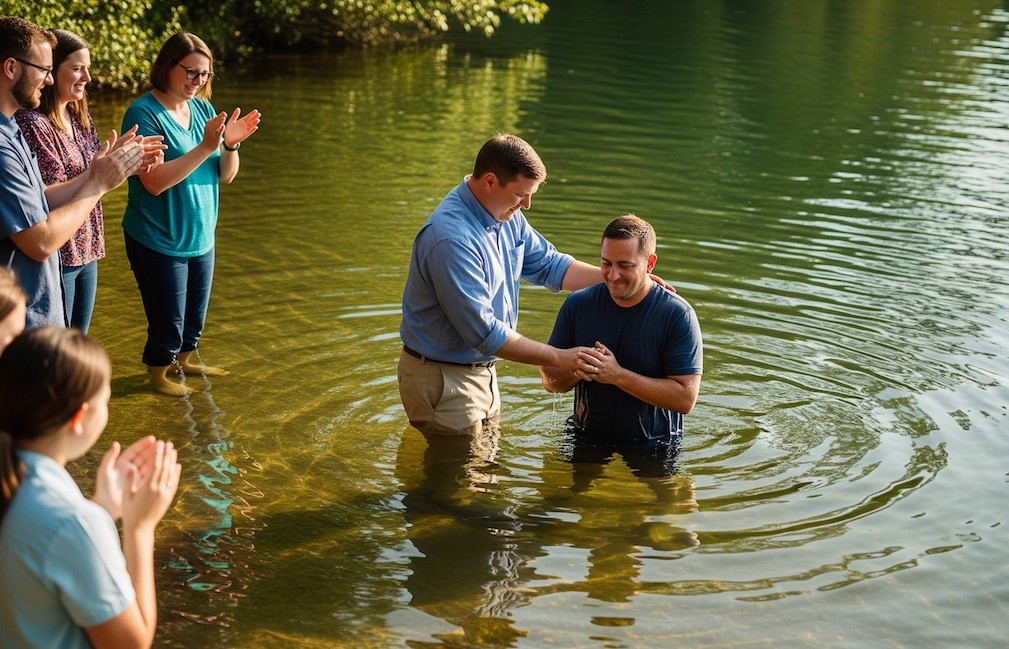“Go ye therefore, and teach all nations, baptizing them in the name of the Father, and of the Son, and of the Holy Ghost” (Matthew 28:19)
Ordinances are mandatory (not optional), and perpetual (not temporary or obsolete). What difference does it make that baptism is an ordinance? To borrow an expression from Paul the Apostle, “Much every way.” That’s true of baptism. It makes a great difference that it is an ordinance. How? In a devotional, we can treat this question only briefly, but there are two important matters to consider.
First, baptism is necessary. Ponder two questions about the necessity of baptism.
- Is baptism necessary for salvation? No. Scripture is abundantly clear that salvation is by God’s grace, not our works. (Ephesians 2:8,9 affirms that truth. A host of other passages also affirm it.) Relying upon baptism for salvation is relying upon our own works. Relying upon baptism in conjunction with anything else is also relying–partially–upon our own works.
- Is baptism necessary for obedience? Yes. Scripture is also clear that obedient Christians are willing to submit to the ordinance of baptism (see the entire Book of the Acts). The thief on the cross next to Jesus placed his trust in Christ but died before he could be baptized. He had no opportunity for baptism. The man went to heaven, according to Jesus’ words in Luke 23:43 (“today shalt thou be with me in paradise”). Otherwise, those who can be baptized should be for the sake of obedience.
Second, baptism is perpetual. A mark of an ordinance, "perpetuity" means the church must follow the direct command given by Christ and keep following it. Paul said, “I have received of the Lord that which I delivered unto you” when referring to the ordinance of the Lord’s Supper (I Corinthians 11:23). Ordinances are permanent. “I received this of the Lord”, said Paul. He implies that it must be carried on because of that.
Being baptized sends a message that the baptized one knows the Savior and wants to obey him. It doesn’t save the baptized one any more than a wedding band makes one married. The wedding band testifies to the fact that one is married. What difference does it make that baptism is an ordinance? Baptism makes the matter public, indicates obedience to Christ’s command, and perpetuates the Great Commission’s great message: Go, teach, baptize.




